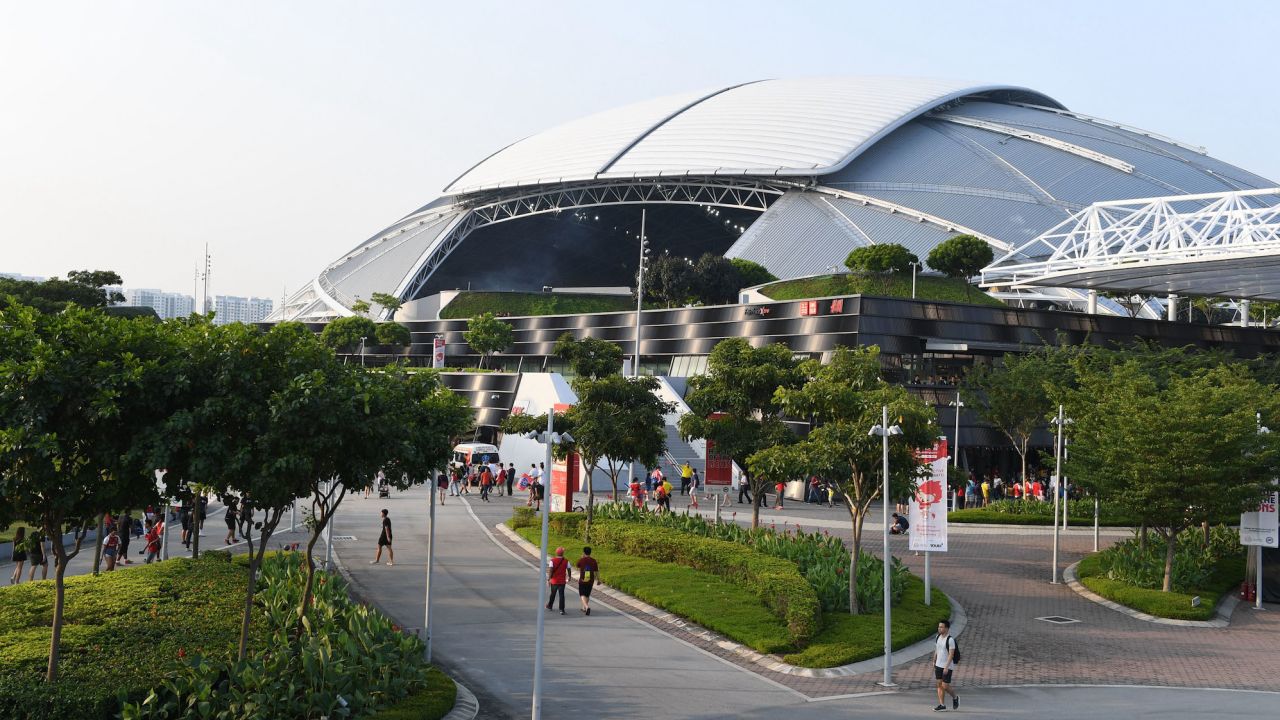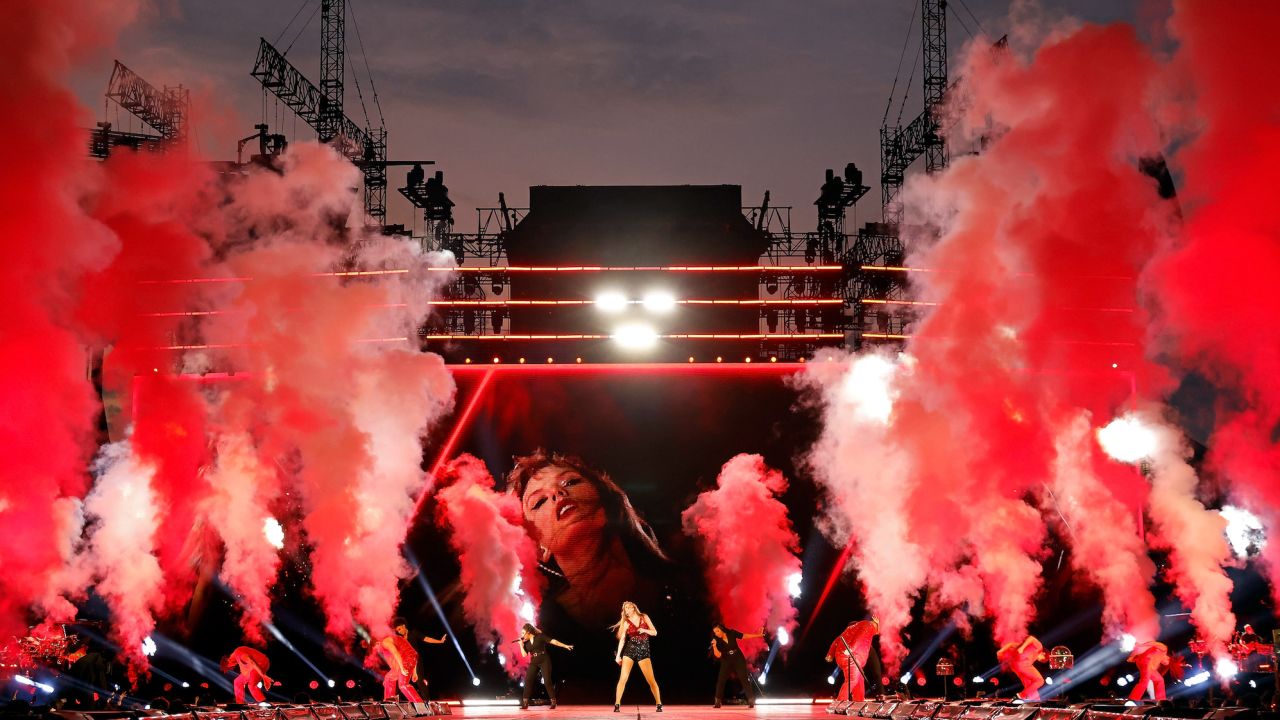CNN
—
It’s been a Cruel Summer for Taylor Swift fans in Asia.
The heat was on last week as millions across the continent competed for just 300,000 tickets to see her in Singapore, which will host the only stop in Southeast Asia for the singer’s Eras Tour, which kicked off in March and will run until August 2024.
Swift will perform at the city state’s National Stadium next March. With other regional hubs like Bangkok, Manila and Jakarta having seemingly missed out on the chance to host the singer, demand for tickets to one of her six nights in Singapore has been skyrocketing.
Her fans elsewhere in the region blamed politics and a lack of infrastructure for failing to attract any highly coveted tour stops.
Organizers in Singapore said more than 22 million people registered for pre-sale tickets while online queues passed the one million mark.
When tickets went on sale Friday, they sold out within hours, leaving legions of “Swifties,” as the singer’s fans are known, disappointed and empty-handed.
So fierce has the competition been that fans have taken to calling it the “Great War” for tickets.
Among them was Jordan Lee, a die hard Swiftie from Jakarta who told CNN that he had come “close to snagging” a ticket, priced $80 and up.
“Friends and me joined the ‘Great War’ online and we had queue numbers from 900,000 to 300,000. We managed to get into ticket selection (on the Ticketmaster website) but were not able to check out. It was too sad.”
Lee is just one of countless Swift fans worldwide who has struggled to get a ticket for a tour that is reportedly on track to make a record $1 billion in sales.
The Eras Tour features more than 100 concerts in the United States, South America, Europe, Australia and New Zealand.
Apart from Singapore, Swift will play just one other country in Asia, Japan, and the resulting fan frenzy has captivated the region’s media outlets with stories about how far people will go to get a ticket.
While Swift mania looks set to give Singapore’s economy a massive boost, it has sparked a debate in other places in the region about why they missed out on such a lucrative event.
As Nur Hazlina, a disgruntled Swiftie from Kuala Lumpur told CNN: “If Taylor Swift doesn’t come to your country, it says something about the local tourism industry and economy.”
CNN has reached out to the concert organizer Ticketmaster and its subsidiary Live Nation for comment.
In Thailand, Pita Limjaroenrat, who is vying to become the country’s next prime minister, declared himself a Swiftie and urged her to visit.
“Thailand is back on track to be fully democratic after you had to cancel last time due to the coup,” the head of the progressive Move Forward Party said in a tweet that went viral. “The Thai people have spoken … and we all look forward to welcoming you to this beautiful nation of ours!”
In 2014, Swift was forced to cancel a sold out show in Bangkok following a military coup.
Move Forward has a huge following among young Thais for its reformist platform and won the most seats and largest share of the popular vote in the May election, though questions remain over whether the military elite will let them rule.
In the Philippines, home to one of the largest and most vocal Swift fanbases, introspection by the local media centered on whether the country had been overlooked due to its notorious traffic jams and poor public transportation.

Swift fans in the United States are known for championing public transport, sometimes overwhelming bus systems and subways when one of her shows is on.
An editorial in the Inquirer newspaper lamented that the famed Philippine Arena, the world’s largest indoor arena, might otherwise have been an ideal site.
“Getting to the Philippine Arena is a test of determination,” the paper said. “It is not enough to build sophisticated structures, it is also paramount to ensure that equally necessary features including road networks, parking lots, public bathrooms and most importantly, an efficient transport system, are available and accessible.”
In Malaysia and Indonesia, both Muslim majority nations, some wondered whether conservative laws and the influence of hardline Islamic groups might have put off tour organizers.
Swift is known for flashy and sometimes revealing costumes on stage. Western acts in the two countries have occasionally caused controversy in the past.
British band Coldplay recently came under pressure from a Malaysian Islamic party to cancel an upcoming show in Kuala Lumpur due to the band’s acceptance of gay rights.
Among those trying to snag online tickets to see Swift in Singapore was Malaysian politician Syed Saddiq, who once served as the country’s minister of youth and sports.
“Imagine the amount of money and visitors those six nights would bring [to Singapore] in such a short period of time,” he told CNN, while recalling how religious protesters had gathered outside a Selena Gomez concert he attended in Kuala Lumpur back in 2015.
“They weren’t violent but they made their views very clear, the same would happen with Taylor Swift if she came to Malaysia,” he said.
“Malaysia might have hosted some of the best events and concerts but that is no longer the case today. This is not how countries should market themselves.”
In Indonesia, hardline Islamic groups have in the past threatened violence in response to foreign music acts they deem inappropriate.
In 2012, Lady Gaga called off a sold out show in Jakarta, meant to be her biggest stop in Asia, after religious protesters threatened violence. The public uproar also resulted in Indonesian police refusing to issue permits for the star to perform.
Outside Southeast Asia, Hong Kong, often seen as a rival to Singapore, has also been debating why it might have lost out.
One event planner in the city told CNN that most venues were often “too small” and “difficult to secure.”
“Many big stars tend to skip Hong Kong. Venues can only hold about 20,000 people, which is too few for Taylor Swift and her Eras Tour, which will be a big production. Black Pink [in comparison] was a lot easier, and cheaper, to stage,” the person said, referring to the K-pop group.

Singapore, with a population of just six million has been “strategic and aggressive” when it comes to business and promoting itself, experts told CNN, in a quest spearheaded by the government that has been years in the making.
“Singapore isn’t the cheapest place to do business but it has many other things going for it: well connected with efficient infrastructure already in place, public safety… all great incentives for event organizers who don’t want risks,” said economist Song Seng Wun.
“Swift is an extremely talented and savvy businesswoman. Every decision she makes about her tour would be strategic,” added Song, who lives in the city state.

In a statement to CNN, Kallang Alive Sport Management, a corporate entity established by Singapore’s Ministry of Culture, Community and Youth and Sport, celebrated its big win.
A spokesperson said the group “led discussions” around the concerts and took their planning to the finish line.
“Live performances draw larger crowds, and we responded by working with promoters to bring in more large-scale multiple-day concerts for our audiences. Today we are seeing significantly higher numbers of high quality concerts… with leading artistes choosing to perform in Singapore,” the spokesperson said.
“Many of these concerts sell out within hours of tickets going on sale and this … signals to the world that Singapore is the leading destination in Asia for live events.”